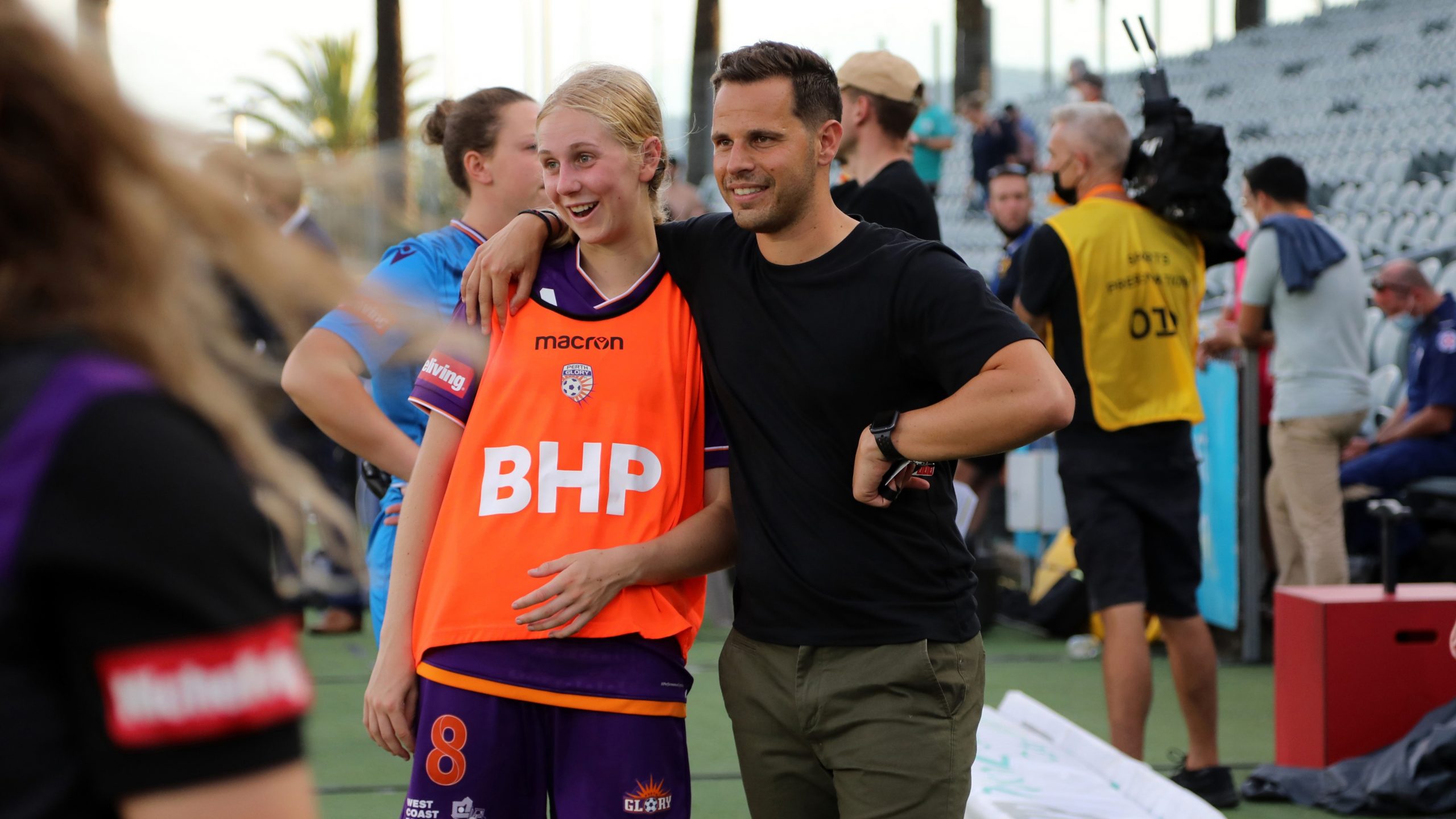By Takis Triadafillou.
Alex Epakis has a distinct coaching style for the Perth Glory FC women’s team. He transmits his philosophy and technique to the female players, making him a huge asset to the Australian team and football.
The Greek Herald spoke with Alex to hear all about how he became interested in football and what his plans are for the women’s team at Perth Glory.
How did you get started in football?
I started really late in football because I played rugby league until about the age of 12. I started playing football at school from the age of 13 onwards and I was better at it then rugby. So I stopped rugby league and went into football and started playing in the NSW National Premier Leagues (NPL). I played NPL for the juniors team at Sydney University and also at the University of New South Wales. But then, to be honest, probably when I was 21-22 years old I decided I wanted to stop playing.
What made you move into coaching?
I had to realise that I wasn’t going to make it as a player. I was a good player, but I wasn’t a great player. So I thought to myself, ‘how else can I be professionally involved in the sport?’
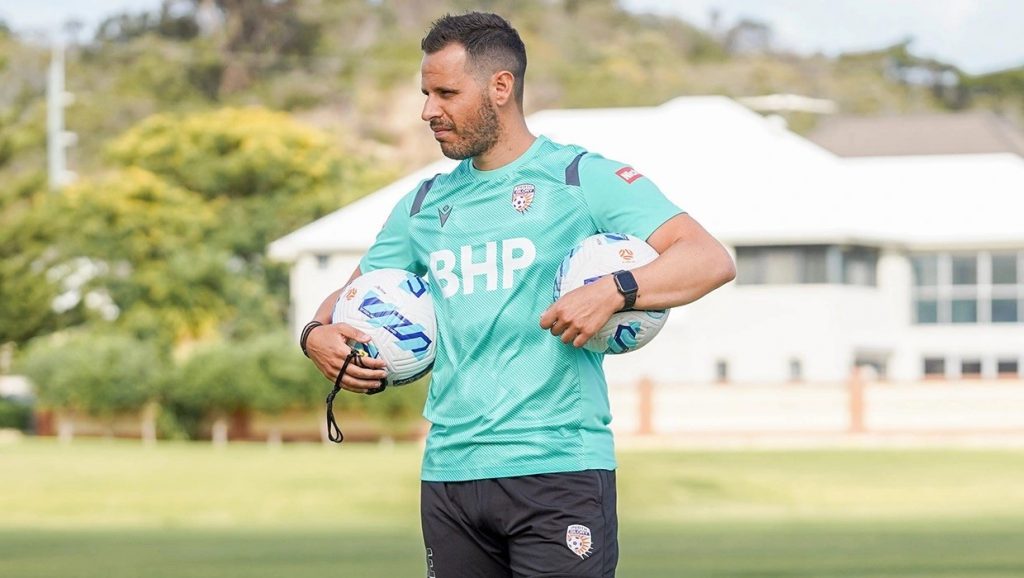
Even now that I’m 31, I could play and I miss playing. But not to the point where I feel I made the wrong decision. I made the best decision I might have at the time.
I started the Eastern Suburbs Football Association and I was there for several years. I love the feel of coaching and also the impact I can have as a coach. So it started to become more of a career then a hobby.
After playing with the Hurstville City Minotaurs FC, where did you go?
I went to Sydney FC and worked in the youth academy there for two years. For me, this was a fantastic opportunity to work at a professional club full-time. But what I found at the time was that there was a difference between training adults and training young people. From this experience I realised that I wanted to be a senior coach of women at the University of Sydney in the NPL from 2018-2020.
It was a great three years. Everything was perfect. But I also knew that the end had come. I needed something different. I needed a break. I wanted to explore other opportunities.
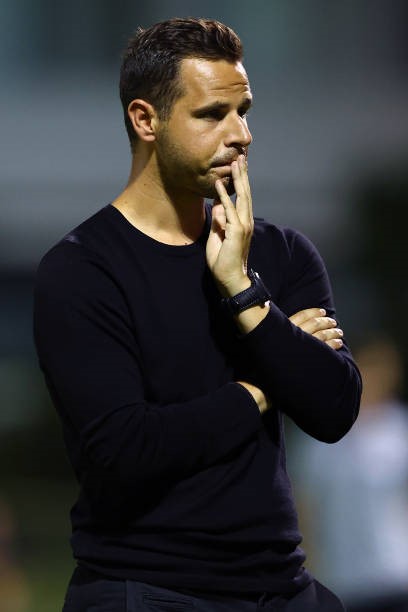
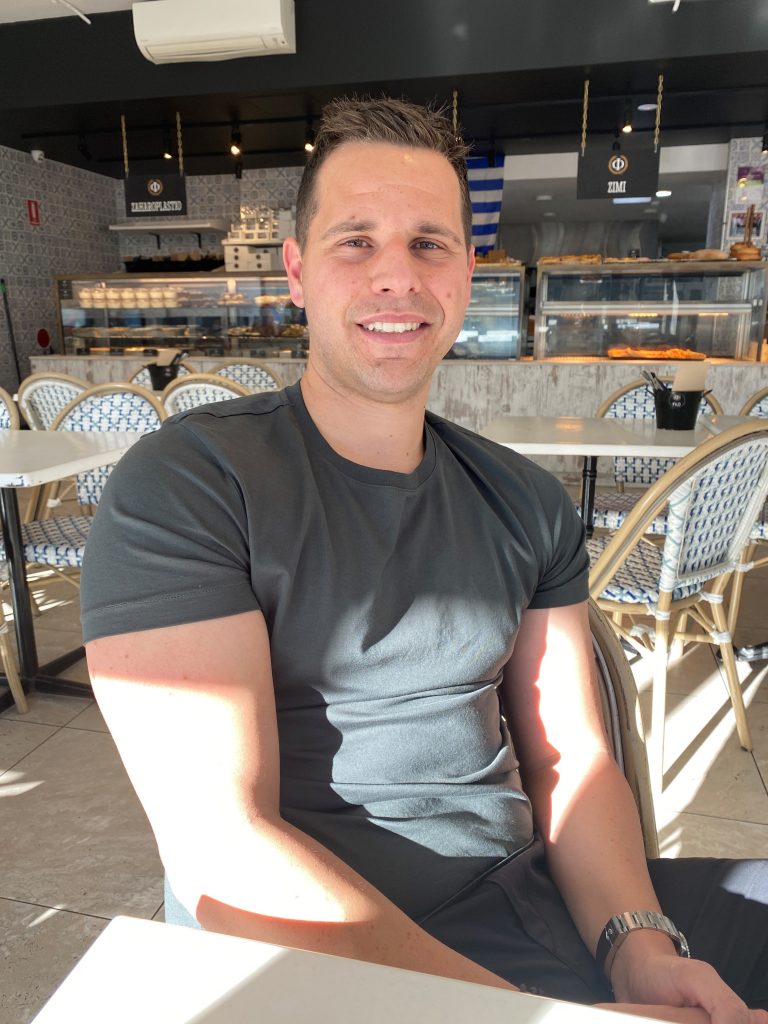
What happened next?
I made the decision to leave the club after we lost the grand final, but the decision had already been communicated halfway through the season to the club. I was following my progress in women’s football and something happened at Perth Glory’s women’s team at the last minute where they needed a new coach.
They asked if I was interested and the next thing I know I’m moving to Perth. Once I was at Perth Glory, we had to work really hard to build a team. The first season was tough. We came back and developed a plan with the club for the second season with new recruitments, with training, with everything.
We did a lot of research and I said I believe that if we make these decisions and put them into practice, we can turn it around. The club have been very respectful of my ideas and supported me.
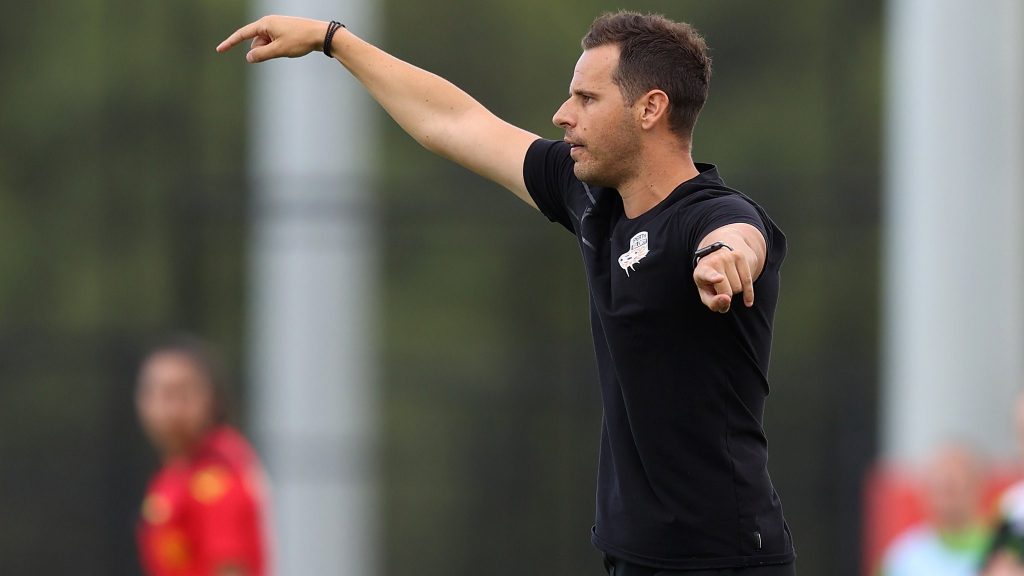
We made a lot of changes and brought in a lot of players and last year, we finished fifth and missed out by just a goal difference from making it into the finals. But within that you also have to understand that we only played one home game because we took the whole team to Sydney for three months and lived in a hotel.
Is there a difference in training for men and women?
I think there’s a difference in coaching any team, whether it’s two different teams, or a men’s team and a women’s team, or a young men’s team to an older men’s team. There are differences based on the people you work with.
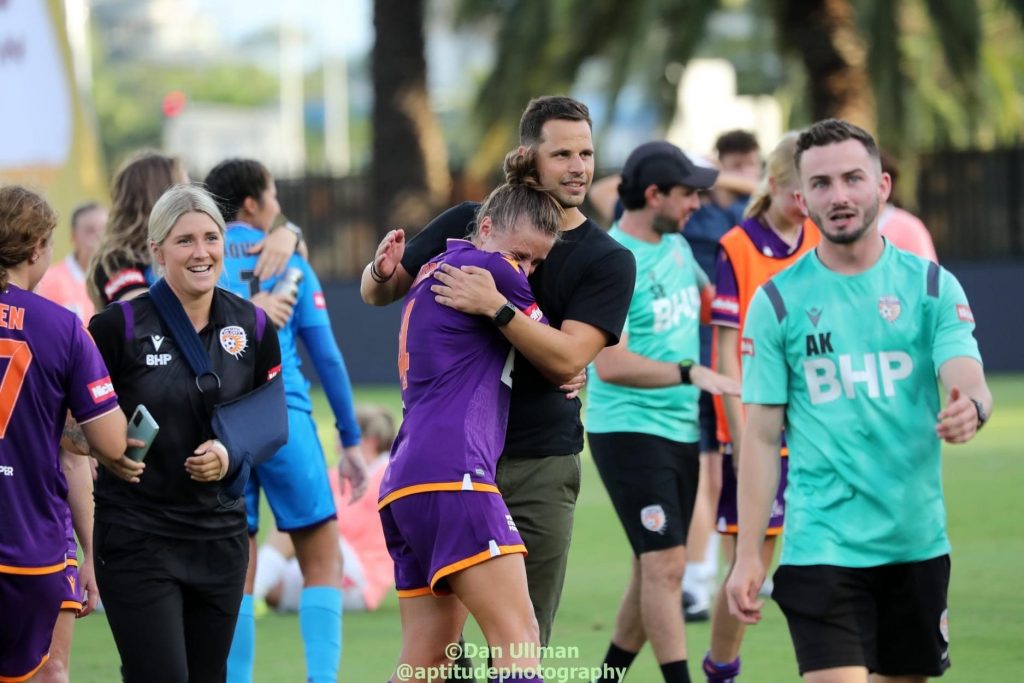
A good and effective coach should be able to switch and move between all types of training, whether it’s male or female. I never wake up and say I’m a women’s soccer coach. I never wake up and say I’m a men’s soccer coach. What I’m saying is that I’m just a professional coach who wants to be the best I can be.
Why did you choose a women’s team?
I’m very fortunate with the opportunities I’ve been given so far in the women’s game and I really believe that I’m making a little positive impact and I’m enjoying being involved in the women’s game. As my coaching journey continues, I want to keep all avenues open to where coaching may take me. I don’t settle for one or the other.
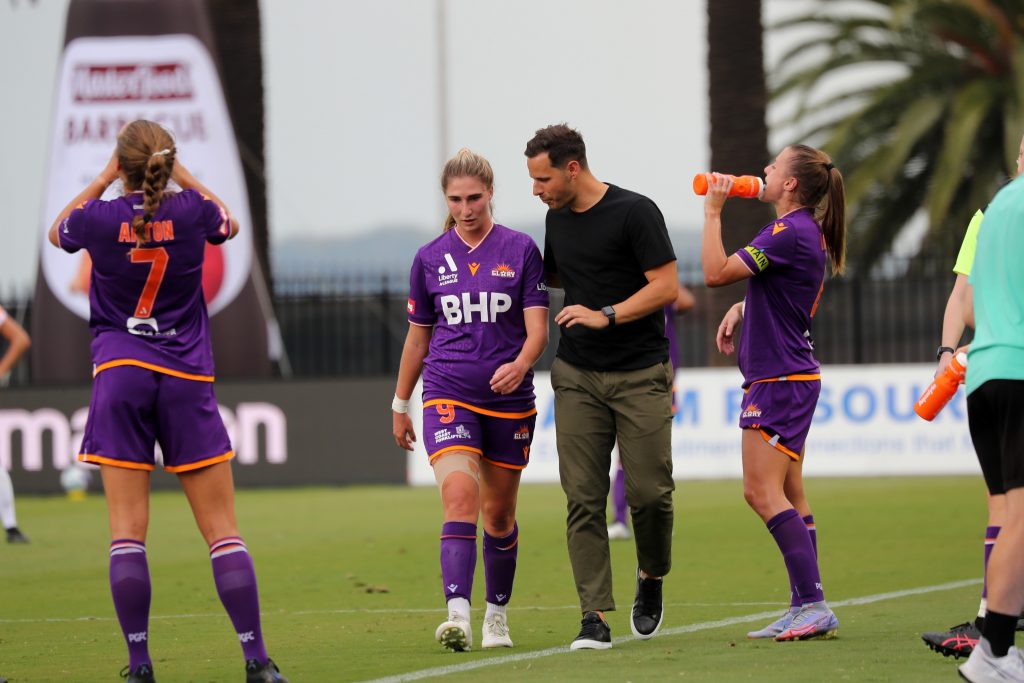
What do you see for the future of women’s football?
I think it’s an amazing time to be a part of women’s football. As I said, I mostly play a small role in it. But it is moving at a very fast pace, especially in Australia. We are developing some very good players. You know, some of our best players in the national team play for some of the best teams.
We also have the Women’s World Cup in 12 months. The Women’s League is expanding. There are so many positive things happening in the game and I’m happy to play a small part in helping it continue to grow.
READ MORE: Alex Epakis signs on for another season at Perth Glory FC.

